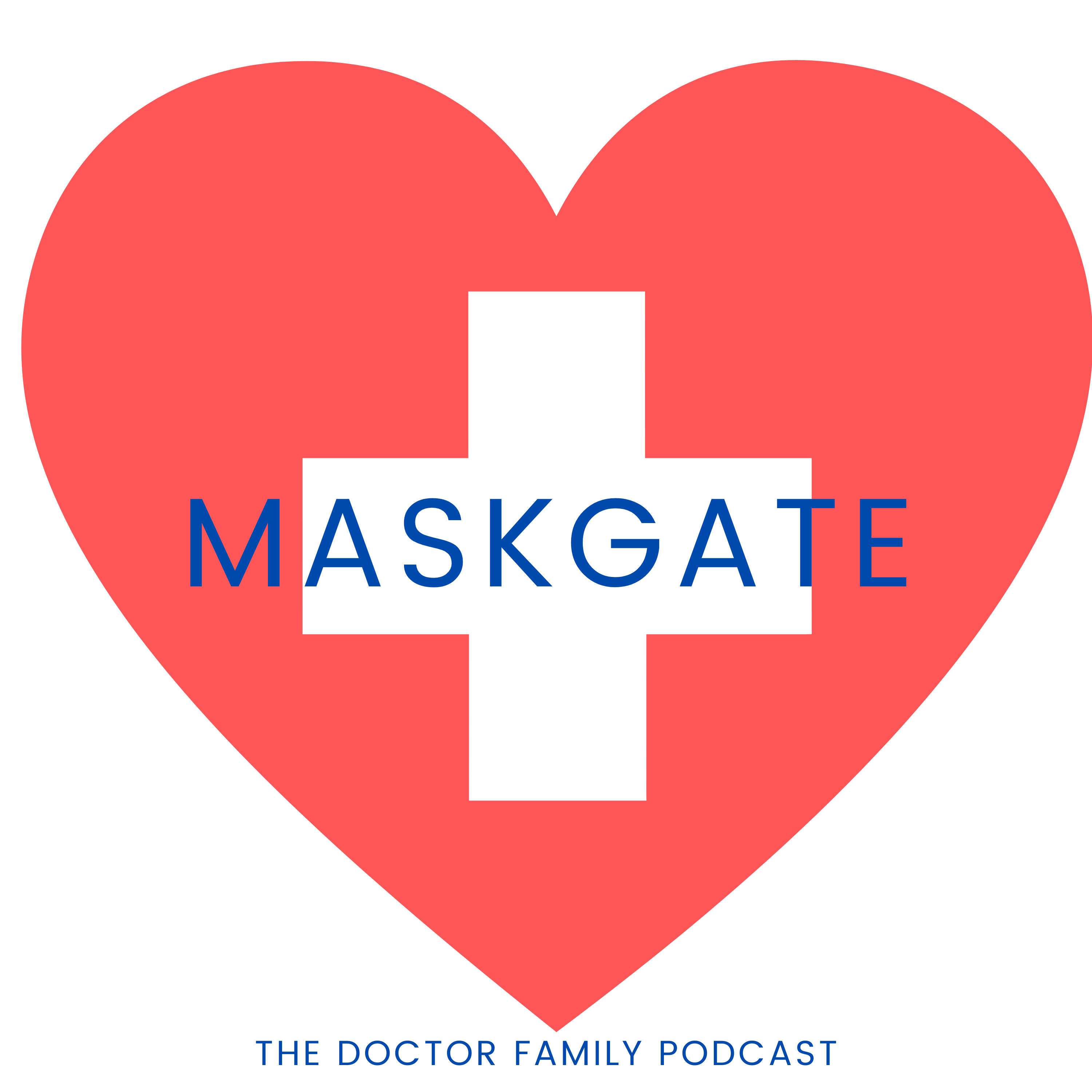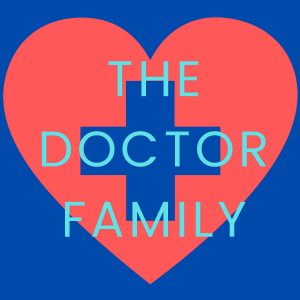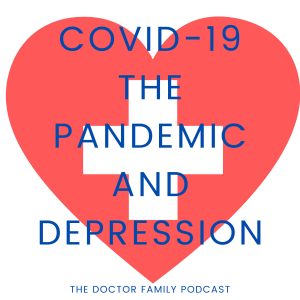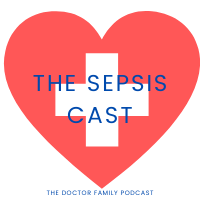In this bonus episode, we review of the controversy over masks to prevent the spread of COVID-19 – the pros, the cons and the ways to mitigate them – along with practical advise on their use.
Paper on evidence for masks by Prof. Trisha Greenhalgh: https://www.bmj.com/content/bmj/369/bmj.m2240.full.pdf
Closed group on Facebook for the people making PPE for their communities: https://www.facebook.com/groups/ForTheLoveOfScrubsUK/
Here is an excellent arrival on the logic of masks by a consultant in Cambridge I used to work with: https://www.theguardian.com/commentisfree/2020/apr/24/face-masks-mandatory-spread-coronavirus-government
Transcript - electronically transcribed
Please note, although I have scanned through it, errors may remain, if you notice any please let me know and I will correct them!
David Stokes 0:05
Hello and welcome to a bonus edition of the doctor family podcast. This is a short podcast, all about msks and COVID-19. There’s been an awful lot of conflicting information out there with mixed messages coming from both the government, medical establishment and the usual loud voices on the internet and social media. Today, as promised, we aim to cut through the fake news and give you the information you need to make a sensible decision to keep you and your family safe.
I’m going to cover three pros. three cons, and some practical advice about masks
pro one masks probably do work to reduce your transmission of the virus to others around you. It’s a droplet spread disease, and the masks that you wear will almost certainly capture a large majority of the droplets that would be emitted from your nose and mouth during normal life.
Pro two. If everyone wears a mask, when they’re out and when they need to then that’ll probably keep you safe too
Pro three. If we all do this right, and managed to avoid a surge in numbers of cases, while the lockdown is eased, then we can hopefully enjoy remaining out of lockdown. I have to say that I’m pretty fed up with lockdown now so anything that I can do to ensure that it doesn’t come back into force will be something I’ll be looking at.
If you’ve spent any time at all on the internet, you’ll have seen an awful lot of noise out there describing the cons of masks. Well, I’m going to go through the three which I think are there and genuine. And we can then talk about how we can mitigate those and things you can do to help
Con one, they can be claustrophobic
Con two. It is thought that people may start to act as if they’re invincible while wearing a mask, a mask will not make you invincible to the virus and
Con three probably the most important one, in my view, is they definitely acts as a barrier to communication.
So con one claustrophobia, I have to admit they do take some getting used to. I’ve worn one very regularly for a number of years, when I’ve been helping out in operating theatres, it definitely takes a little bit of time to get used to when you first wear one but I can categorically state that I have never passed out through lack of oxygen because of wearing a theatre mask and some of those operations were pretty long
Mitigation for con two. Just make sure that you’re wearing the mask as an additional protection. Still, try to maintain a sensible distance and ensure that you’re using hand washing at all times. Whatever you do, try not to touch your face too often while you’re out when you are wearing the mask, wear it over both your mouth and your nose, stop adjusting if you can.
Con three. Now this is where I really do think there are some issues, problems with communication as a GP I really rely on good communication with my patients. And I have to say that consulting with the mask on while the patient also has a mask on can be a big barrier and I can often miss some of the nonverbal cues that are offered to me by my patients. However, I think I’m still lucky compared to people who are lip readers who, when surrounded all of a sudden, by people wearing masks lose this link to the rest of the world, and the communication becomes very difficult. All I can say is, there are masks with windows that people are starting to make where a clear plastic insert is put into the middle of the mask that people can then see the mouth and lips, although I don’t know how effective they are for lip readers to be able to read through. And then there’s the other ways you can help communication with people who are hard of hearing. I for one have been using my dictation software, either on my computer or on my smartphone to allow me to dictate in real time for the person I’m speaking to, to be able to hear what I’m trying to say.
So here are some practical things about masks that I want everyone to be aware of. Firstly, what sort of mask Do you need. Well, from my standpoint, if you’re trying to protect yourself but more importantly protect everyone around you, then you need to have a mask that doesn’t vent. Those ones that have little valves on them to allow your escaping breath to get out straight away through the valve are probably the most anti social masks there are, as they send a jet of droplets potentially from your respiratory tract out into the open to the people around you. Please avoid those. And certainly, please don’t come to my surgery while you’re wearing one,
Two, It doesn’t have to be a specifically made medical grade mask which has been fit tested to ensure a perfect fit. Indeed, there is good thought that a mask made of several layers of different materials or tightly woven cotton is very effective at capturing most of the droplets that are produced by the respiratory tract. It’s important that when you do wear a mask you treat it like you would a hankie, it’s likely that it’s going to get warm and damp while you’re wearing it. You should treat it as you would your hankie after it’s been used to blow your nose. Don’t leave it around. Don’t be playing with it or touching it. Once you’ve finished wearing it. Put it away safely until it can be put into a hot wash to kill any potential viral particles that may be on it.
In summary, I think masks are a good thing and should if used properly helped keep us away from a further lockdown. I just like to thank all of those people out there who are busy making personal protective equipment for both family and friends but also for those health care professionals working close to them.
One other thought when the breakout first started, the term personal protective equipment, certainly in my head suggested masks and other garments that would keep the wearer safe from the virus. I think it would be helpful at this stage to start framing mask wearing in public, as being public protecting equipment is far more socially minded. And if we all do it, then hopefully we’ll be keeping everyone safe, those are my thoughts on the subject, I’d be very interested to hear yours. Please do get in touch and interact with us either via email, our website or Facebook or our websites, I’ll be putting a link to a paper which describes some of the evidence behind the thinking here by Trish Greenhalgh, Professor of general practice primary care. And I’ll also try to put a link to some of the amazing groups who are currently making personal protective equipment. Stay safe, and hopefully the next podcast will be out next week, please do subscribe in your usual podcast app. Take care.




Very good and interesting talk about face masks which I agree with
Clear, concise, well delivered. Thank you. I will be sharing this.
I am highly sceptical on the efficacy of wearing masks as most do not understand the hygiene required when wearing and sanitising. Yes I do wear a mask only when I have to and my thoughts are to keep away from densely populated areas i.e. shops. I also carry a sprayer containing a viricide that has to be changed when the colour clears, weekly.
Have a listen to https://thedoctorfamily.com/covid-19-the-immune-system-and-you
And see if you still think that 😉